Thought Leadership Studio Podcast Episodes:
Leadership That Listens with Dr. Roger Gerard
Episode 99 – From Command and Control to Purpose and Presence: How Thoughtful Leaders Empower Professionals, Elevate Culture, and Rediscover Fulfillment
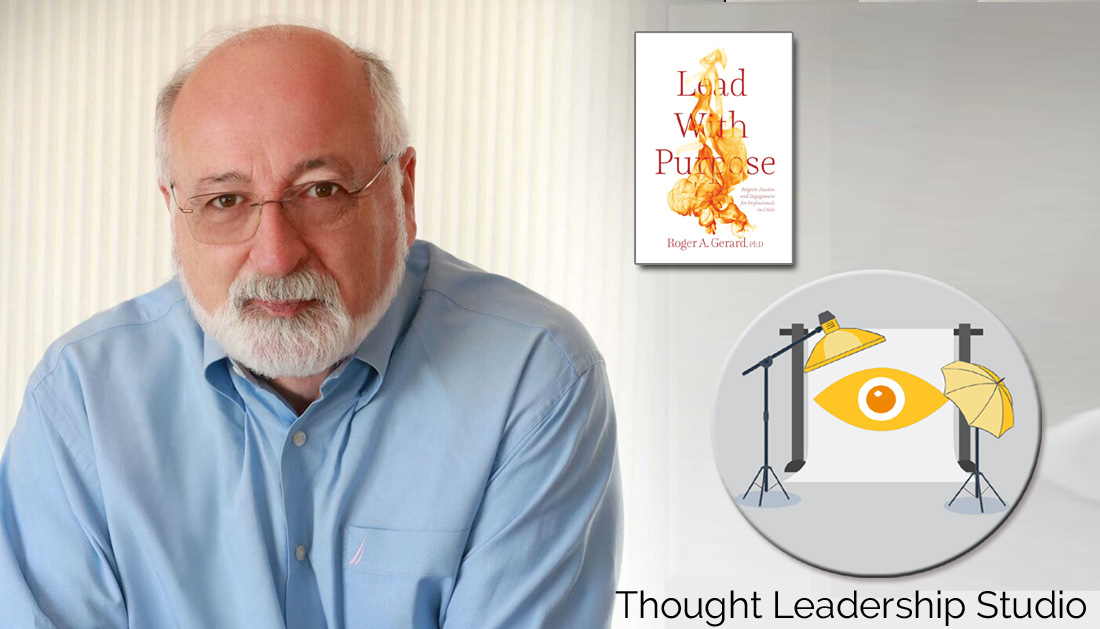
#authors, #coaching, #communication, #consulting, #influence, #insight, #inspiration, #interview, #leadership, #management, #marketingstrategy, #meaningfulwork, #organizationalculture, #paradigmchange, #paradigmshifts, #systemsthinking, #thoughtleadership, #thoughtleadershipexamples
Or Click here to listen or subscribe on appWhat this episode will do for you
:- Explore Human-Centered Leadership: Discover how great leaders build relationships, remove barriers, and unlock each team member’s unique potential. (This can also apply to clients and - in many cases - audience members)
- Understand the Roots of Professional Disengagement: Learn why many professionals feel alienated or commoditized in fields like healthcare and education, and what can be done to restore meaning.
- Rethink Management Myths: Challenge outdated command-and-control models with Roger’s perspective on why they fail and what must replace them.
- Get Real-World Stories of Transformation: Be inspired by compelling stories of people breaking free from roles that don’t fit - and finding purpose, even if it means changing careers (or business models) entirely.
- Help You Reflect on Your Own Path: Walk away with deep questions and practical ideas for aligning your work with what truly feeds your spirit.
Dr. Roger Gerard.
In this episode, I’m honored to host Dr. Roger Gerard—author, leadership expert, and champion of meaningful work.
What happens when professionals feel trapped in roles that don’t feed their spirit?
Roger draws from over 50 years of experience transforming organizations—from hospitals to classrooms—by helping leaders trade command-and-control for connection and purpose. As co-author of On the Mend and author of Lead with Purpose, he shows how lean thinking, when done right, empowers people rather than squeezes them.
Roger focuses on professionals, but these lessons could apply just as much to entrepreneurs, founders, C-Suite leaders, and their customers, clients, and their audience members.
Roger and I explore how a leader can help others reclaim passion - and how great leaders create space for that rediscovery. He also shares hard truths, hopeful shifts, and real stories of transformation you won’t want to miss.
Some of Roger's coordinates:
Curated Transcript of Interview with Dr. Roger Gerard
The following partial transcript is lightly edited for clarity - the full interview is on audio. Click here to listen.
Chris McNeil: I'm Chris McNeil, your5 host of Thought Leadership Studio, and today I am joined across Zoom by Dr. Roger a Gerard, an author, speaker, and executive consultant with over 50 years of leadership experience.
As the former chief learning officer of Medicare, he pioneered lean methodologies to drive organizational excellence ... that's a great topic itself. Dr. Gerard is the author of Owning the Room and co-author of On the Mend. His latest book, Lead With Purpose Reignite Passion and Engagement for Professionals in Crisis tackles the growing issue of disengagement among professionals and offers leaders a roadmap to restore passion and purpose in the workplace. Great to have you here, Roger.
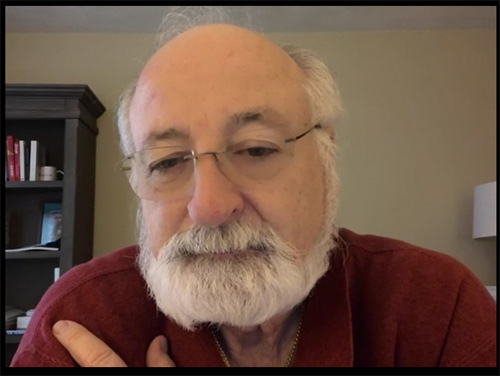 Dr. Roger Gerard: Thank you. I'm pleased to be here, Chris.
Dr. Roger Gerard: Thank you. I'm pleased to be here, Chris.
Chris McNeil: Or great to have you there in Wisconsin from South Carolina where I'm at, but the miracle of technology puts us across the table from each other.
We sometimes like to start these interviews with getting a little context for the listener from where you're coming from in case they're not already familiar with your work, and I know we're going to dive a lot into these lead with purpose and disengagement issues and what to do about them.
Was there a pivotal moment or a learning experience or an event that triggered this direction in your work that you could share with the listener, to give them some context?
From Heart Association to Thought Leadership: A Path to Purpose
Dr. Roger Gerard: Yeah, let's talk about a little bit of my background and that background might offer the context you're looking for.
I spent the first 10 years of my career in the seventies in health agency kinds of work. I spent time with the Heart Association, the Cancer Society. I was a field representative and then a field director and eventually became the field director responsible for the entire metro of Detroit area when I was in Michigan and went from there in the Heart Association to the American Cancer Society.
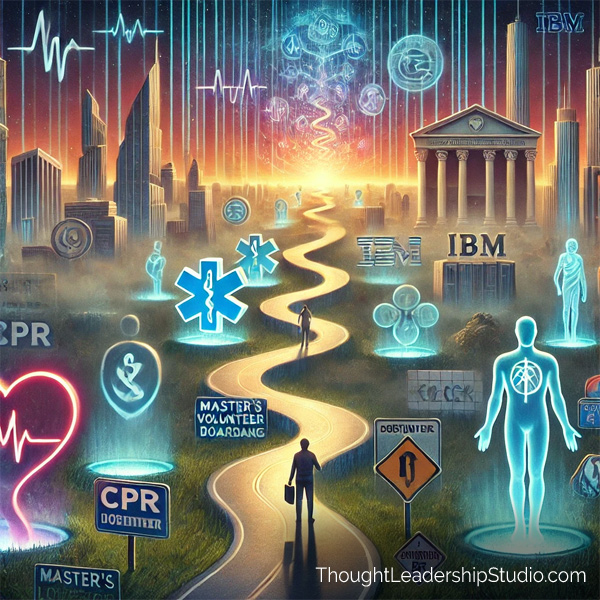 I learned a lot of things in those two environments. I learned how to form a board and committees and put together volunteers who then did all of the public education, the fundraising, and all of the operational activities of those organizations. I also learned a lot about the learning process. I learned training in my heart association experience by taking on the responsibility for the cardiopulmonary resuscitation training of instructors and instructor trainers throughout the state of Michigan.
I learned a lot of things in those two environments. I learned how to form a board and committees and put together volunteers who then did all of the public education, the fundraising, and all of the operational activities of those organizations. I also learned a lot about the learning process. I learned training in my heart association experience by taking on the responsibility for the cardiopulmonary resuscitation training of instructors and instructor trainers throughout the state of Michigan.
So as I was learning these things in the seventies, I became very aware of what leadership is, what volunteerism is, what motivation is, and how all of these things work together. In that journey, I then became acquainted with a company called the Employers Association of Detroit, which is a personnel services organization in the Detroit area. Eventually joined their staff and started doing management training and executive coaching as part of my journey in the eighties there and one of my clients was a very large system called Gulf & Western Manufacturing.
G&W was one of the largest companies on the planet at the time, and as we did our work around the country and internationally, I learned that there is a huge cultural element involved in people's understanding of leadership and how all of that works. I went to work for a company called Sandy Corporation in the mid eighties and in that capacity I was a creative executive and creative director on projects with Burroughs, IBM, Ford Motor Company and General Motors Company.
And in those projects I was building leadership training programs for those companies as they were trying to reinvent themselves after the quality fiascos of the seventies and eighties. So I was just blessed with experiences and people in my life who were able to mentor me and coach me and lead me to my own thoughts about what leadership is, what constitutes motivation, what constitutes enterprise. And I went back to my university setting, got a master's degree and then a doctorate in management.
All of that occurred around 1990 and I've then joined ThedaCare and became their chief learning officer with a primary responsibility of doing all of their leadership development. I also took responsibility for all of their clinical and technical educators and manage their entire learning operations. They wanted to call me the chief teaching officer and I said, no, that's not what I do. It's about learning and it's about causing an environment where professionals can come together and learn ...
Chris McNeil: Love that.
When Systems Forget the Humans in Them
Dr. Roger Gerard: ... as we did that, I brought into ThedaCare a number of people around quality improvement that I had been associated with in the manufacturing industry, and we learned all about lean enterprise work and we did the work of teaching people in healthcare how to apply lean manufacturing methodologies with patients on carts and patients in a captive way through surgical processes and all of the things that happen in the healthcare environment.
So began my journey ... as I went on that journey, I saw something that very deeply disturbed me. A lot of people in the healthcare industry and in the teaching industry feel alienated. They don't feel well served. They don't feel like they're being treated as the professionals that they are, and that includes physicians, nurses, technical people in the healthcare industry, teachers in elementary and secondary education.
 People are feeling marginalized, people are feeling commoditized. It is almost like plug and play for some of these professions, and that's not a good thing. When people come into their professions, they come into their professions with certain expectations.
People are feeling marginalized, people are feeling commoditized. It is almost like plug and play for some of these professions, and that's not a good thing. When people come into their professions, they come into their professions with certain expectations.
They don't expect to be treated like cogs in a wheel, and unfortunately, given the financial constraints and pressures, the societal constraints and pressures, a lot of traditional management process tends to commoditize the professionals doing the daily work of the organization. That is not a script for creating high levels of engagement.
Chris McNeil: What's the thinking behind that?
Dr. Roger Gerard:The thinking on the part of the leadership to commoditize?
Chris McNeil: Yes.
Dr. Roger Gerard: The thinking behind that is a nurse is a nurse, is a nurse, is a nurse. Well, that's not exactly true. An ICU nurse is a very different commodity than an ER nurse or a surgical nurse or a MedSurg nurse or a physician office nurse. They are very, very different creatures with very different backgrounds and very different training, and we can't just plug and play.
We can't just move people around and expect them to be fully functioning in their profession, and yet that's what's happening in the interest of saving money, in the interest of creating efficiencies, and what we're doing is we're bringing everything to the mean as opposed to advancing high levels of performance.
Chris McNeil: That makes sense in the sense that this reductionist thinking or by reducing people down to a role, you missed the diversity of talent ...
Dr. Roger Gerard: Correct.
Purpose Isn’t Installed - It’s Revealed
Chris McNeil: ... that could flourish if it was allowed the space to do that. You've been in leadership roles, leadership training roles before you dove deep into the academic side. Was I understanding that correctly?
Dr. Roger Gerard: You understand that perfectly. The academic was an afterthought.
Chris McNeil: Yeah, I think that's fascinating because I've seen the other direction a lot more than that.
Dr. Roger Gerard: I have what's called an applications doctorate. I got my doctorate from Walden University, and in order to accomplish the doctorate, you had to do not only a breath study in your areas of knowledge and a depth study, you also had to do application projects and prove that you can change something and you have to do that multiple times before you even do your dissertation.
Chris McNeil: Well, there's a couple of themes that I think could be really powerful for our listener. One is from the position of someone in that commodity category, who doesn't want to be there - How do they break out of it? ... or, does that have to be an organizational culture or belief system shift? That would be one of those.
Dr. Roger Gerard: It's a mix of both. Yeah, it's a mix of both. I coach individuals frequently and part of the coaching is obviously a listening process, but you start with inquiry and the questions I ask are around what does your soul tell you? What did your heart tell you? What does your sense of self tell you about where you need to be right now?
 And I try to elicit what their intentions are for their career, for their life, for their daily sustenance. Are they in a survival mode or are they in a growth mode? What are they doing with their lives and their careers right now? Once I understand that, we can then move people individually to a better place by helping them understand what they have to do to feed themselves, not just financially, but also professionally in their growth and personally in their sense of service to the larger community.
And I try to elicit what their intentions are for their career, for their life, for their daily sustenance. Are they in a survival mode or are they in a growth mode? What are they doing with their lives and their careers right now? Once I understand that, we can then move people individually to a better place by helping them understand what they have to do to feed themselves, not just financially, but also professionally in their growth and personally in their sense of service to the larger community.
Most people who come into teaching or healthcare, they come in because they want to serve people. They're already motivated. I'm on the circuit right now telling people you don't have to motivate professionals really when you think you have to do that, what you're really doing is manipulating them to accomplish your ends.
Professionals are motivated and they're trained to do the right thing if you've hired the right professionals. So get out of this sense that you have to motivate them and get into a place where, how do you serve them so that they can work at their optimum level? How do you make them wildly successful? That should be the leadership question.
Chris McNeil: Is it getting barriers out of the way? For one thing, and I recall another brilliant management thinker I interviewed some time ago who broughtup the point of when you start putting these extrinsic carrot and stick type motivations in place, you actually detract from the intrinsic motivation people naturally get from doing good with their work.
Dr. Roger Gerard: Absolutely. There was a book written by a guy named Alfie Kohn back in the eighties - it was Punished By Rewards, which is a great book if you're interested in the research.
Chris McNeil: I love the title.
Dr. Roger Gerard: Yeah. That was exactly his point. As he did his research, most people come into their work intrinsically motivated. They want to do it because they want to do it, and then we damage that when we bring them in, we impose goals on them that they didn't have when they came in.
Some of that imposition is appropriate. The organization has goals too, but there has to be a marriage between what the organization wants to accomplish and what the individual professional needs to accomplish for themselves. And if you don't create that marriage, it's not going to work.
Feed Your Spirit Or Move On
Chris McNeil: So what would be your advice, first of all, to someone who's listening to this who is a professional and feels constrained in such a way, or commoditized - and a theme of this podcast is how to break out of the commodity category and be proprietary.
Dr. Roger Gerard: In working with individuals. My advice to them is to, number one, know exactly who they are and know exactly what they want out of their profession in their daily life. What do they want? What will feed their spirit and to the extent that they can within the environment they're in, organize their work to feed their own spirit. Do it.
Once you go there, if there is still further need, talk to your boss, talk to a mentor, get people around you involved in that conversation so that your professional capacity can be retained and you can get more of what you need and want in order to be a satisfied professional. If that doesn't work, you may have to find work somewhere else. And the reality for the individual is you're unlikely to make big changes in the organization you're working in. It may be time for you to find another organization where you can flourish more effectively.
 I've had to do that in my career by eight times, and it's scary and you have to let go of what you have in order to get what you want. And that's a hard equation for some people. It's insecure, but if you truly want to be satisfied in your profession, in your career, sometimes you have to do that. As a leader, it's my job to know what the people who report to me need in their lives and in their careers. I have to know more than just their resume.
I've had to do that in my career by eight times, and it's scary and you have to let go of what you have in order to get what you want. And that's a hard equation for some people. It's insecure, but if you truly want to be satisfied in your profession, in your career, sometimes you have to do that. As a leader, it's my job to know what the people who report to me need in their lives and in their careers. I have to know more than just their resume.
I have to know why they're doing the work they're doing. I have to know them on a human level, eyeball to eyeball belly button to belly button. We have to understand together why we're all here. And if I can as a leader, understand that I can start doing that removing obstacles thing, I can start doing that.
How do I make your job more enriching for you so that you get out of your career position what you need to have? I also want to create a world in which you can be wildly successful. So you have to tell me what that is, and if you tell me what that is, we raise the probability that I can help you do that. It's all about probabilities, it's all about relationships.
When Gallup does their studies on engagement, one of the things that they hammer over and over again is people leave organizations because of the relationship they either have or don't have with their boss. That's why they leave. And so if you understand that you're going to work to have a really powerful relationship with the people who work with you
Beyond the Checklist: Leadership That Listens
Chris McNeil: And do you think it's a matter of a task versus relationship focus in leadership, sometimes?
Dr. Roger Gerard: It's both ... at a professional level, it's both. I'll give you an example. In the teaching industry, I have an acquaintance who is a teacher in a high school. She's a marvelous artist and she teaches the arts in this school, and she does just an incredible job with the students, and increasingly she has to do things outside of teaching the arts. She has to create a phone corral in her classroom so that students aren't distracted by their phones.
She has to play cop and make sure that people are disciplined enough to do the work that they're there to do. She has to fill out forms and all kinds of administrative things, and then she has to follow a script in her teaching instead of allowing the creative energies of the students guide what needs to be learned, this teacher is increasingly being confined who a very scripted set of behaviors, some of which has to do with the arts in much of it, which does not have to do with the arts. How is that enriching for that teacher? It's not.
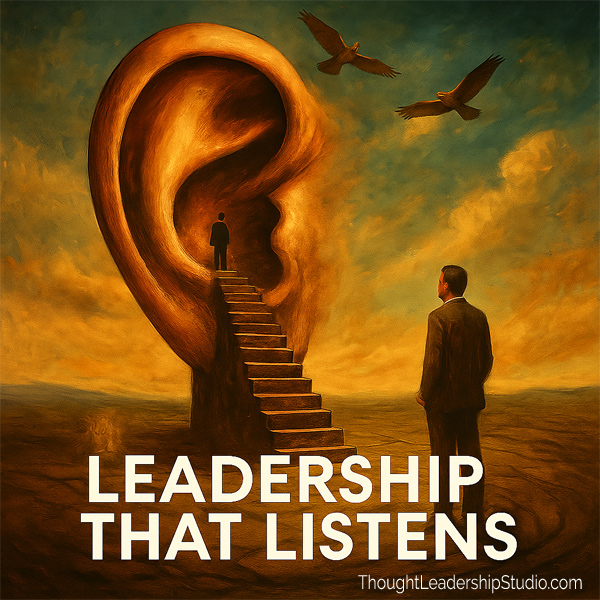 Chris McNeil: I imagine it's not right. And it's my understanding, correct me if I'm wrong, that you have had some involvement in the lean methodology.
Chris McNeil: I imagine it's not right. And it's my understanding, correct me if I'm wrong, that you have had some involvement in the lean methodology.
Dr. Roger Gerard: Oh yes.
Chris McNeil: Have you found some insight into some of these underlying belief systems, maybe contrasting the lean versus command and control hierarchical type management thinking, which still seems to be very prevalent, although we certainly seen plenty evidence that it's not the best ...
Dr. Roger Gerard: Oh my gosh, yeah. Much of leadership thinking today is over a century old. It's still tailors. It's all about command and control, measurement and observation and shame and blame and all of that is adverse to creating a fulfilling professional environment. When we brought in the Lean enterprise work into ThedaCare, I had already had about 10 years of experience in the quality teaching industry around quality being conformance to requirements and all of the stuff that goes with that.
I was an early adapter of quality circle methodology in the late seventies, early eighties as the auto industry was in free fall. And what happened in my own understanding was that a lot of what we were seeing as misperformance was a leadership issue, not a staff issue, not an employee issue, but a management issue. And I spent quite a bit of time in the eighties trying to get inside of that and really understand it. So as I did all of that and then discovered lean, I made sure in working with the consultants, we brought in that we had a culturally robust approach to lean implementation.
The consultants wanted to come in at first and do kind of a turnkey operation and start with the senior leadership and mandate a whole lot of stuff to staff. And that's not going to happen on my watch. Not going to happen. We're going to do some experiments, we're going to do some small studies. We're going to teach employees success. We're going to teach employees how to simplify, how to map out a process, how to take out redundancy, how to take out all of these areas of waste, and in that process listen to the employee's wisdom and understanding because they're the ones doing the daily work.
Chris McNeil: Yes.
Dr. Roger Gerard: And we did probably five or ten demonstration projects before we even a ask for high leadership commitment to the process and the employee sold it.
Lean was not mean to our employees. Lean was understood to be a way to improve quality by taking out waste in the processes and our professionals wanted quality to improve they're professionals.
Chris McNeil: Absolutely. I mean, that's where the satisfaction comes from for a lot of people, isn't it? It's doing good work that has positive impact.
Beyond the Role: Rediscovering Purpose
Dr. Roger Gerard: If you read On The Mend that John Toussaint and I wrote, John was our CEO and I was the Chief Learning officer. John and I wrote a book On The Mend to talk about that whole process and how we put that in place in ThedaCare.
Chris McNeil: Interesting, interesting. I'll make sure to share a link to that for our listener on the episode page.
Dr. Roger Gerard: Excellent.
Chris McNeil: Interesting. I'll make sure to share a link to that for our listener on the episode page (done, see above).
Dr. Roger Gerard: Excellent.
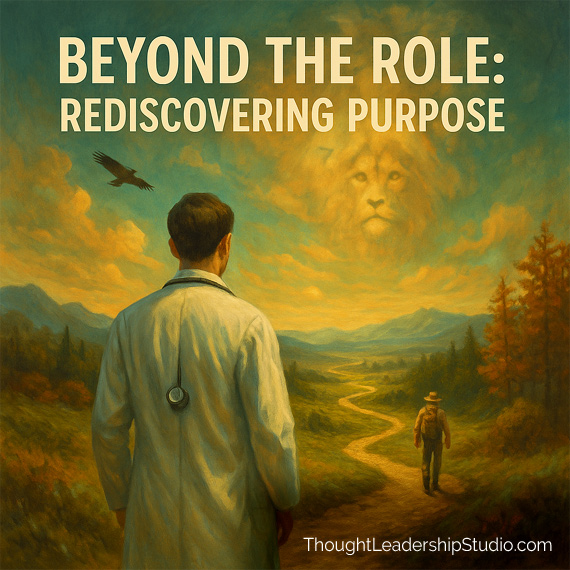 Chris McNeil: You brought up earlier creating space for people to discover who they are, what they want - simple statements, but that's really profound and perhaps a place of breakthrough for people who might feel constrained to, oh, this is my role here, so I got to fit my identity into this box at least during these hours.
Chris McNeil: You brought up earlier creating space for people to discover who they are, what they want - simple statements, but that's really profound and perhaps a place of breakthrough for people who might feel constrained to, oh, this is my role here, so I got to fit my identity into this box at least during these hours.
And maybe part of that is getting out of that box of the role as it's defined. How do you do that? How do you create space for someone to do those kind of discovery questions? I can just imagine listener wondering, well, am I sure about that? Do I know myself at that level?
Dr. Roger Gerard: I'm kind of amazed as I age how many people come into their professions because that's what daddy wanted me to do or that's what mom wanted me to do, or that's what my brothers and sisters did, and I'm just following in their footsteps. A lot of people come into their lives this way or they get trained in a college academic degree because maybe I can make a lot of money.
So they go into college and they become a lawyer or they become a nurse or doctor. I've had doctors who have come into their professions that way because parents were physicians. And in one case, I was interviewing a very troubled doctor who was misbehaving with the other professional staff, and I was asked to intervene and spend some time with this guy.
And so I did and I asked him why the behaviors were happening and what was going on, and he said, you know what? I hate being a doctor. And then there was silence and I then asked him, what does that mean? And after a little bit of time, he said, I thought I was going to make a lot of money and serve a lot of people, but I don't feel the gratitude. I don't feel the satisfaction. I don't like doing what I'm doing anymore. And then there was more silence. And then he said, what are you thinking?
And my reaction was, I never want you to touch my body. If you don't like doing what you're doing, you are the wrong guy to be my doctor, so now it's our job to help you find out what you would love to do. He said, I already know that. I said, what's that? He said, I love trumping around in the woods. I love being out and about in nature. I like to climb hills and if there's a mountain, I'm going to go after it. I like to put on a pair of boots and slop around in the mud. That's what I love today. He's a forest ranger ...
***************************************
The transcript is lightly edited for clarity and is a partial transcript- the full interview is on audio. Click here to listen.
***************************************
Free Stuff and Offers Mentioned in Podcast
***************************************
***************************************